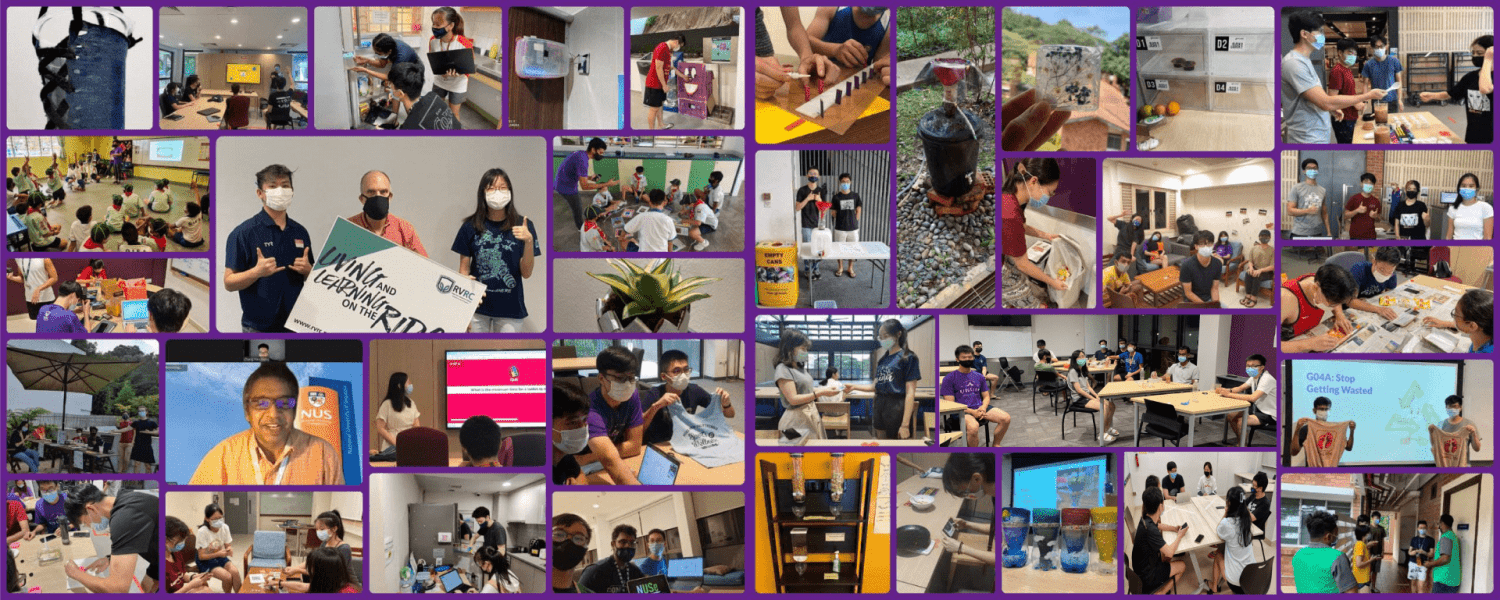Benjamin Fheng Guo Jing, Kerie Tham Jialing, Ng Ca Lin, Ng Yong Zheng, Pang Kim Jin
Academic Advisor: Ms. Sadaf Ansari
2 billion people worldwide live in rural areas without ready access to hot water, with over 67% of them relying on burning biofuels such as crop residues or manure for their energy needs. While crop straws are a renewable source of energy, burning them inadvertently produces more than 550 kg of CO2 annually, significantly contributing to global warming (Niu et al., 2017). Our project aims to bridge this energy gap by designing an off-grid solution for environmentally-friendly water heating especially targeted at users in tropical.
The key design features of the water heater we designed are ease of fabrication, portability, and economical. Our prototype circulates water from a storage tank through a network of copper pipes, which are heated when placed under direct sun exposure, before storing the heated water back into the tank. To test this, we built and tested our prototype over 4 weeks to measure water temperature change in a controlled setup. We followed this with a volunteer group experiment to measure user comfort levels of the temperature of the heated water using our prototype and compared it to results from the electric heater.
We found that our solar-powered water heater prototype was able to consistently heat water above the average comfortable hot water shower temperature of 42.8°C. Based on these results, we have shared our prototype with NUS OCIP and recommend field testing the heater during NUS student OCIP visits.
Keywords: Energy
